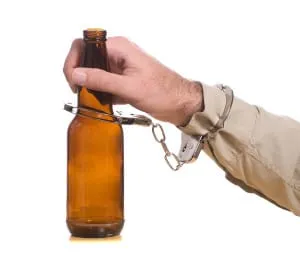 Drunk driving is one of the most committed and deadliest offenses in America, according to the Governors Highway Safety Association (GHSA). The National Highway Traffic Safety Administration (NHTSA) reports that 97 percent of Americans see drunk driving as a threat to the community, and with good reason. According to Mothers Against Drunk Driving (MADD), someone is killed by a drunk driver every 45 minutes while three out of 10 people in the US will be involved in an alcohol-related crash.
Drunk driving is one of the most committed and deadliest offenses in America, according to the Governors Highway Safety Association (GHSA). The National Highway Traffic Safety Administration (NHTSA) reports that 97 percent of Americans see drunk driving as a threat to the community, and with good reason. According to Mothers Against Drunk Driving (MADD), someone is killed by a drunk driver every 45 minutes while three out of 10 people in the US will be involved in an alcohol-related crash.
However, the creation and strong enforcement of tough drunk driving laws is one method for combating this far too common offense. While every state has laws that address drunk driving, not all DUI laws are made equal. Legislation that incorporates other proven methods for decreasing drunk driving, such as ignition interlocks and sobriety checkpoints, are most effective at fighting impaired driving and saving lives.
Ignition interlocks, devices that force drivers to prove sobriety before their cars will start, continue to prove effective against both repeat DUI offenses and DUI-related deaths. According to the Centers for Disease Control and Prevention (CDC), ignition interlocks have reduced repeat DUI offenses by two-thirds while MADD reports that many states with mandatory all-offender ignition interlock laws have cut DUI deaths by at least 30 percent. While all 50 states have some sort of ignition interlock law, only 18 states require all convicted drunk drivers, including first-time offenders, to install the device. As part of their Campaign to Eliminate Drunk Driving, MADD continuously urges other states to follow suit.
According to GHSA, sobriety checkpoints, locations where law enforcement officers check drivers for signs of alcohol impairment, are also a valuable component of an effective DUI law. The CDC reports that sobriety checkpoints reduce alcohol-related crashes by about 20 percent. However, 12 states do not use sobriety checkpoints because of constitutional issues.
To best combat drunk driving, GHSA encourages the maintenance or enactment of the following laws and provisions:
- Laws that set the BAC level for DUI at 0.08 or lower
- Use of alcohol-detecting devices, such as roadside evidential breath testing devices
- Administrative license suspension or revocation for drivers arrested for DUI, refusing to take sobriety tests, or failing sobriety tests
- Vehicle sanctions, such as ignition interlocks or vehicle seizure
- Enhanced penalties for first-time offenders with high BAC levels and repeat offenders
- Open container laws
- Use of sobriety checkpoints and/or establishment of dedicated DUI patrols
Visit www.ghsa.org for more provisions in GHSA’s impaired driving policy.
